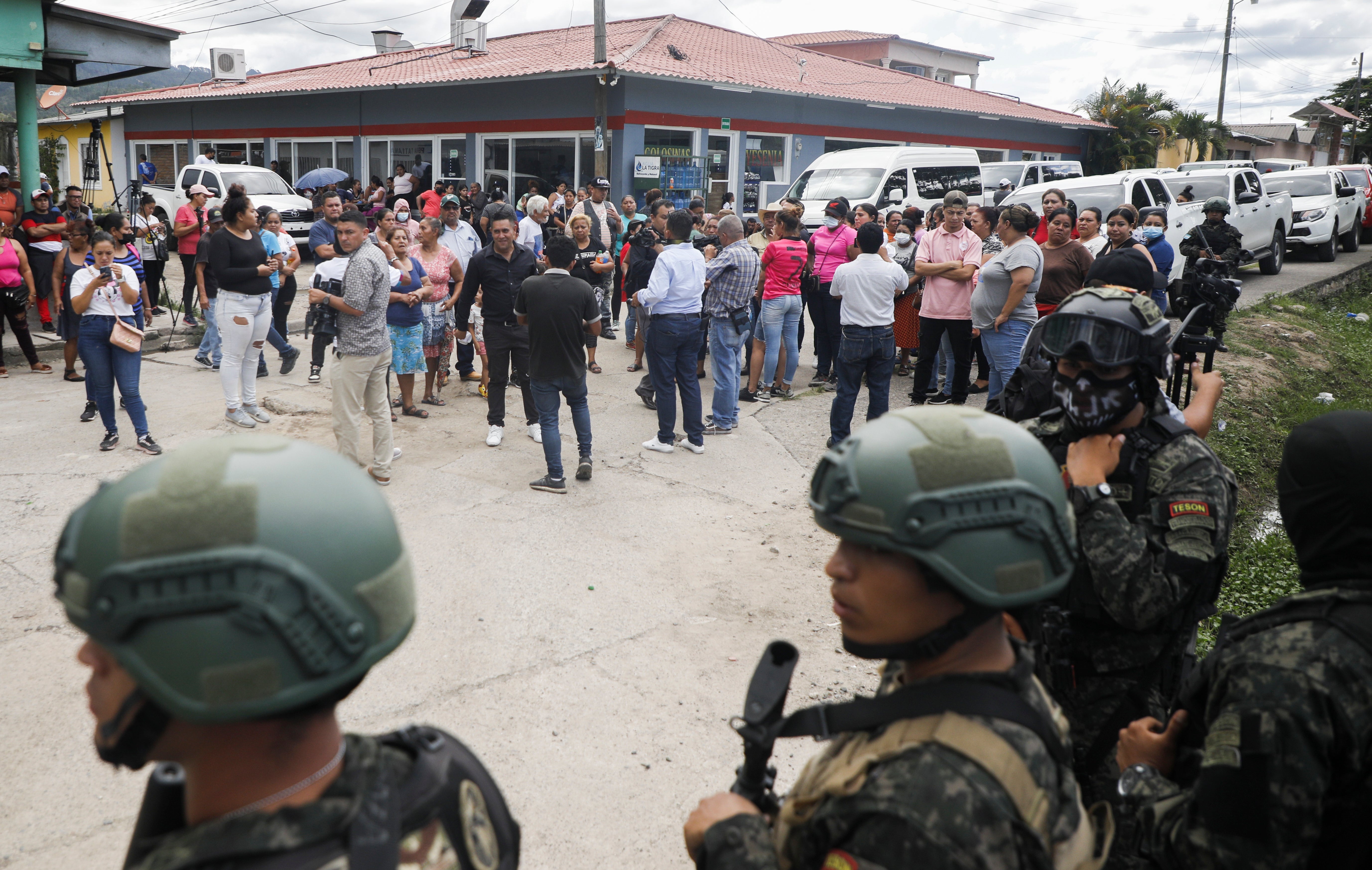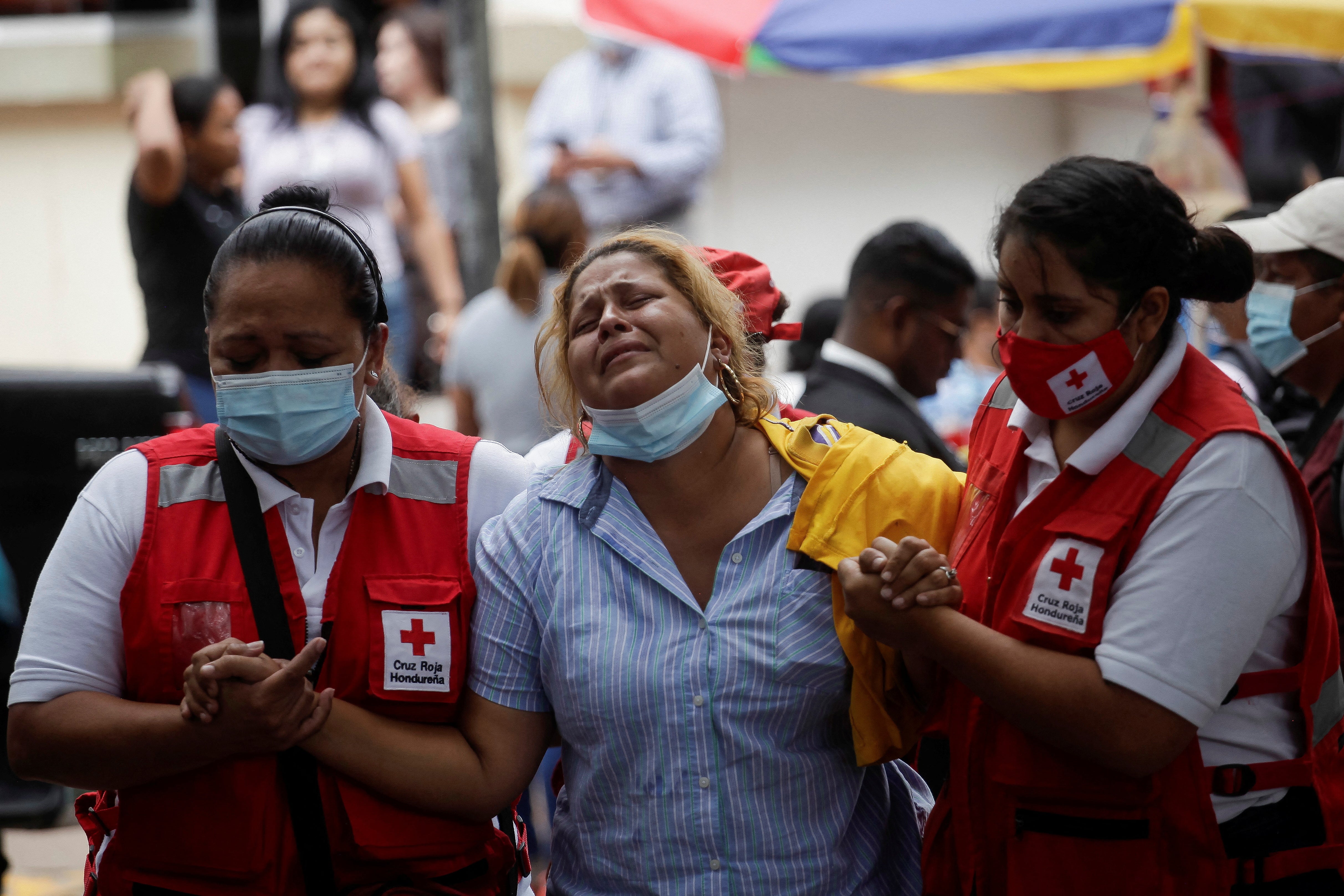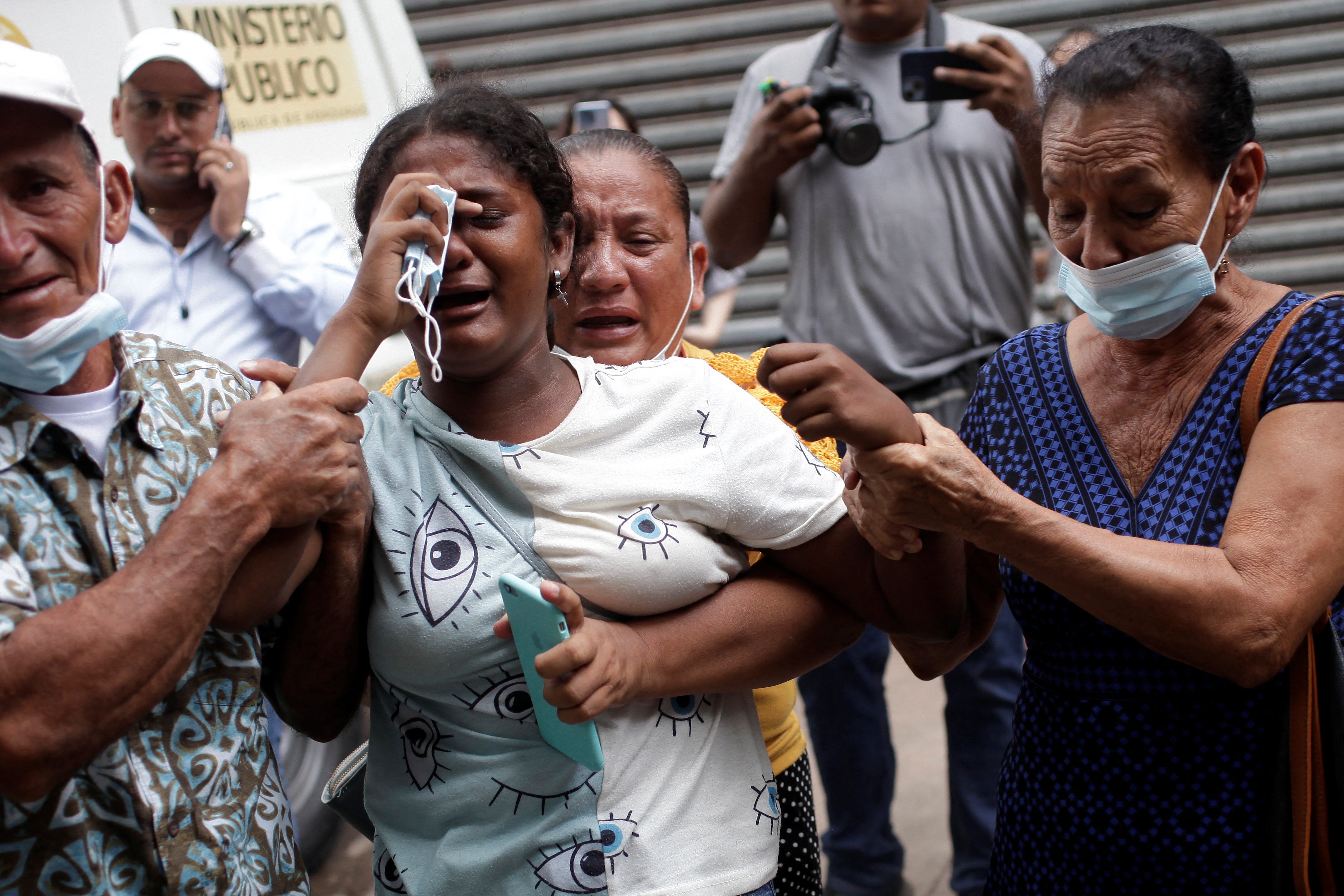Several Honduras prison carnage victims were locked up and set on fire, officials say
As toll reaches 46, officials say victims were locked up and sprayed with bullets before being set on fire

Gang members at a women’s prison in Honduras locked the survivors of a deadly massacre, in which 46 women were killed in their cells, and set them on fire, officials said.
Violence erupted in the women’s jail in the town of Tamara, about 50km northwest of Honduras capital Tegucigalpa on Tuesday after a fight broke out between rival gangs, after which one gang set a cell alight.
The gang members locked up survivors fleeing the violence in a cell, sprayed them with gunfire, hacked them with machetes and doused them with flammable liquid, resulting in a devastating inferno.
Videos on social media show smoke coming out of the prison cell as the fire left the walls of the prison blackened and beds reduced to twisted heaps of metal.
The death toll from the carnage reached 46, making it one of the deadliest atrocities in recent memory at a women’s prison.
Officials said most of those who died were killed in the fire, but others were shot, stabbed or beaten to death.
The chief of operations for Honduras’s national police, Juan López Rochez, described the incident as a planned attack orchestrated by rival gangs.
“A group of armed people went to the cellblock of a rival gang, locked the doors, opened fire on those inside and apparently – this is still under investigation – used some kind of oil to set fire to them,” Mr López Rochez told local media.

Honduras president Xiomara Castro denounced the riot and said it was “planned by maras [gangs] with the knowledge and acquiescence of security authorities”.
Ms Castro said she was “shocked by the monstrous murder of women” and would take “drastic measures” in response.
Questions are emerging over how the perpetrators of the violence managed to smuggle guns and machetes into the prison as well as move freely between cellblocks.
“Obviously, there must have been human failure,” Mr López Rochez said. “We are investigating all the employees at the centre.”
The country’s security minister Ramón Sabillón has been sacked by the president and has been replaced with the head of the national police force, Gustavo Sánchez.
Forensic teams are working to identify the victims as the investigation unfolds.

The gangs responsible for the violence are believed to Central America’s most notorious criminal organisations: the 18th Street Gang and MS-13.
Some of the victims are not thought to have been linked to either of the two gangs but were caught up in the carnage.
Drug cartels and gangs have long been responsible for deadly violence in Honduras and other parts of Central America, which is a major transit route for cocaine coming from South America to the US.
In 2019, at least 18 people were killed in gang violence at a prison in the northern port city of Tela.
Join our commenting forum
Join thought-provoking conversations, follow other Independent readers and see their replies
Comments


Bookmark popover
Removed from bookmarks